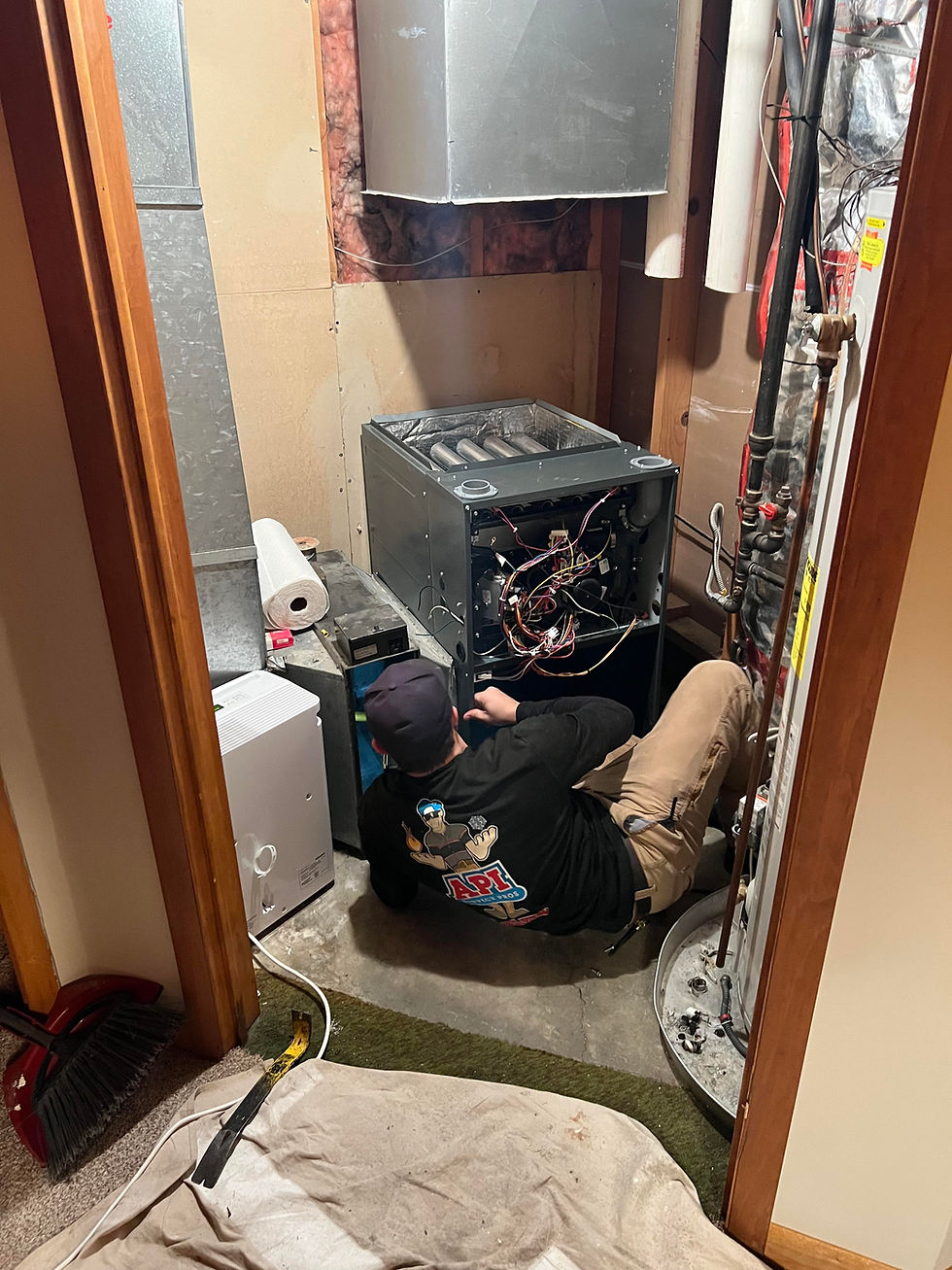Everything You Need To Know About Your Filter
- API Service Pros

- Jul 7, 2023
- 2 min read
Updated: Oct 10, 2023

Putting a filter in your HVAC (Heating, Ventilation, and Air Conditioning) unit is important for several reasons:
1. Improved indoor air quality: The primary purpose of an HVAC filter is to trap and remove dust, pollen, pet dander, mold spores, and other airborne particles from the air circulating through your system. This helps to improve the indoor air quality by reducing allergens and irritants, making the air cleaner and healthier to breathe.
2. Protection for HVAC components: The filter also plays a crucial role in protecting the HVAC system itself. It prevents larger particles from entering the system and accumulating on sensitive components like the blower motor, evaporator coil, and heat exchanger. Without a filter, these components can become clogged with debris, leading to reduced efficiency, increased energy consumption, and potentially expensive repairs.
3. Energy efficiency: A clean filter allows for better airflow, which is essential for the efficient operation of your HVAC system. When the filter is clogged, it restricts the airflow, causing the system to work harder to maintain the desired temperature. This can result in higher energy consumption and increased utility bills.
If you don't change the HVAC filter regularly, several problems can arise:
1. Reduced airflow: As the filter becomes dirty and clogged, it restricts the airflow through the system. This puts additional strain on the blower motor, reducing its efficiency and potentially leading to overheating.
2. Decreased cooling/heating effectiveness: With a dirty filter, the airflow through the system is hindered, which means your HVAC system may struggle to cool or heat your home effectively. Rooms may take longer to reach the desired temperature, or there may be uneven cooling/heating throughout the house.
3. Increased energy consumption: A clogged filter forces your HVAC system to work harder to compensate for the restricted airflow. This results in increased energy consumption and higher utility bills.
4. HVAC system damage: If the filter is not changed for an extended period, the accumulated debris can bypass the filter and enter the HVAC system, leading to the accumulation of dirt on crucial components. This can cause damage, reduced efficiency, and potentially costly repairs.
5. Poor indoor air quality: A dirty filter cannot effectively capture airborne particles, reducing its ability to improve indoor air quality. This can be particularly problematic for individuals with allergies, asthma, or respiratory conditions.
To maintain a healthy and efficient HVAC system, it's generally recommended to change your filter regularly. The frequency may vary depending on the type of filter, the level of pollutants in your environment, and the manufacturer's recommendations. It's best to consult your HVAC system's manual or seek advice from a professional to determine the appropriate filter change schedule for your specific system.





